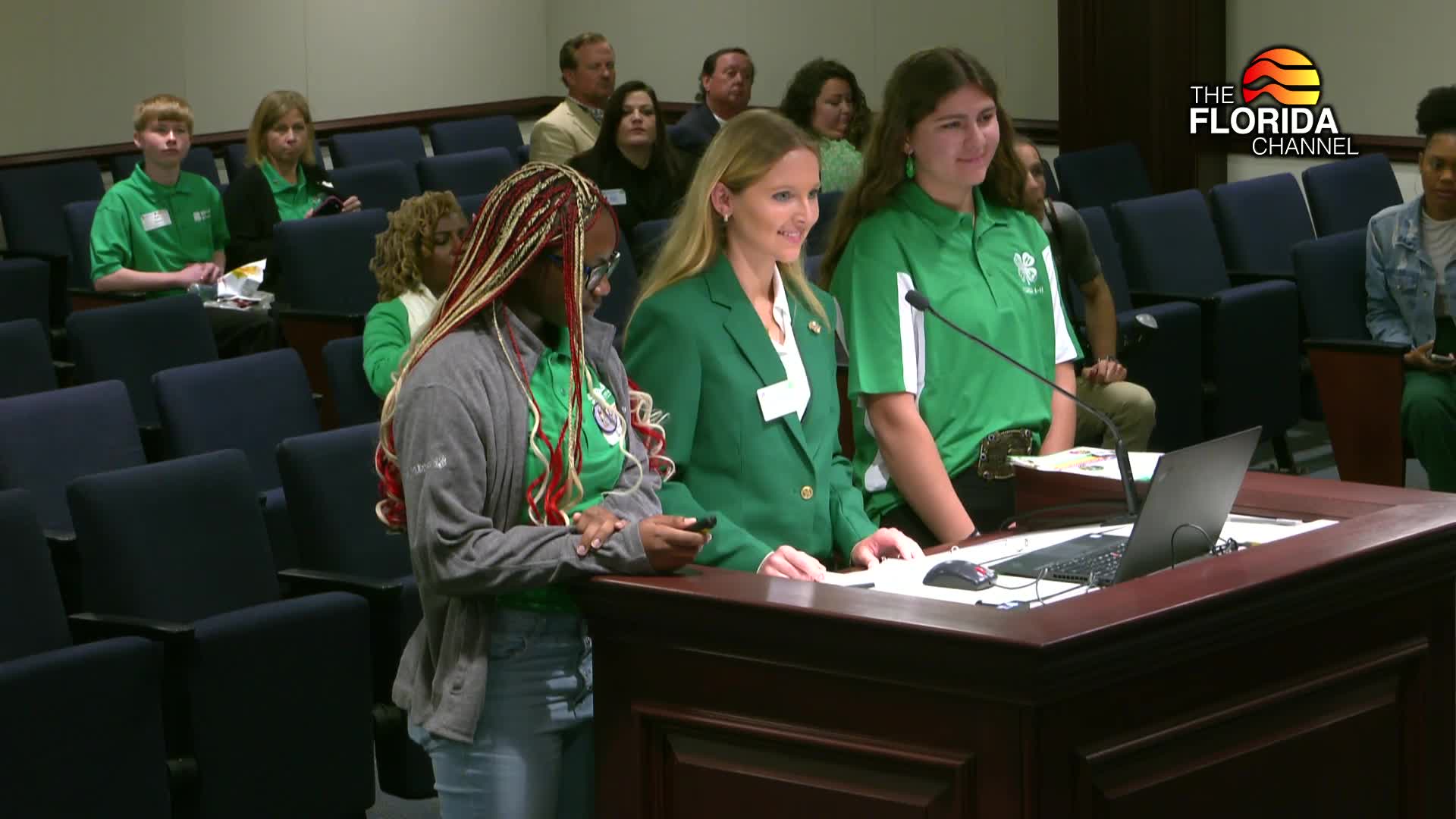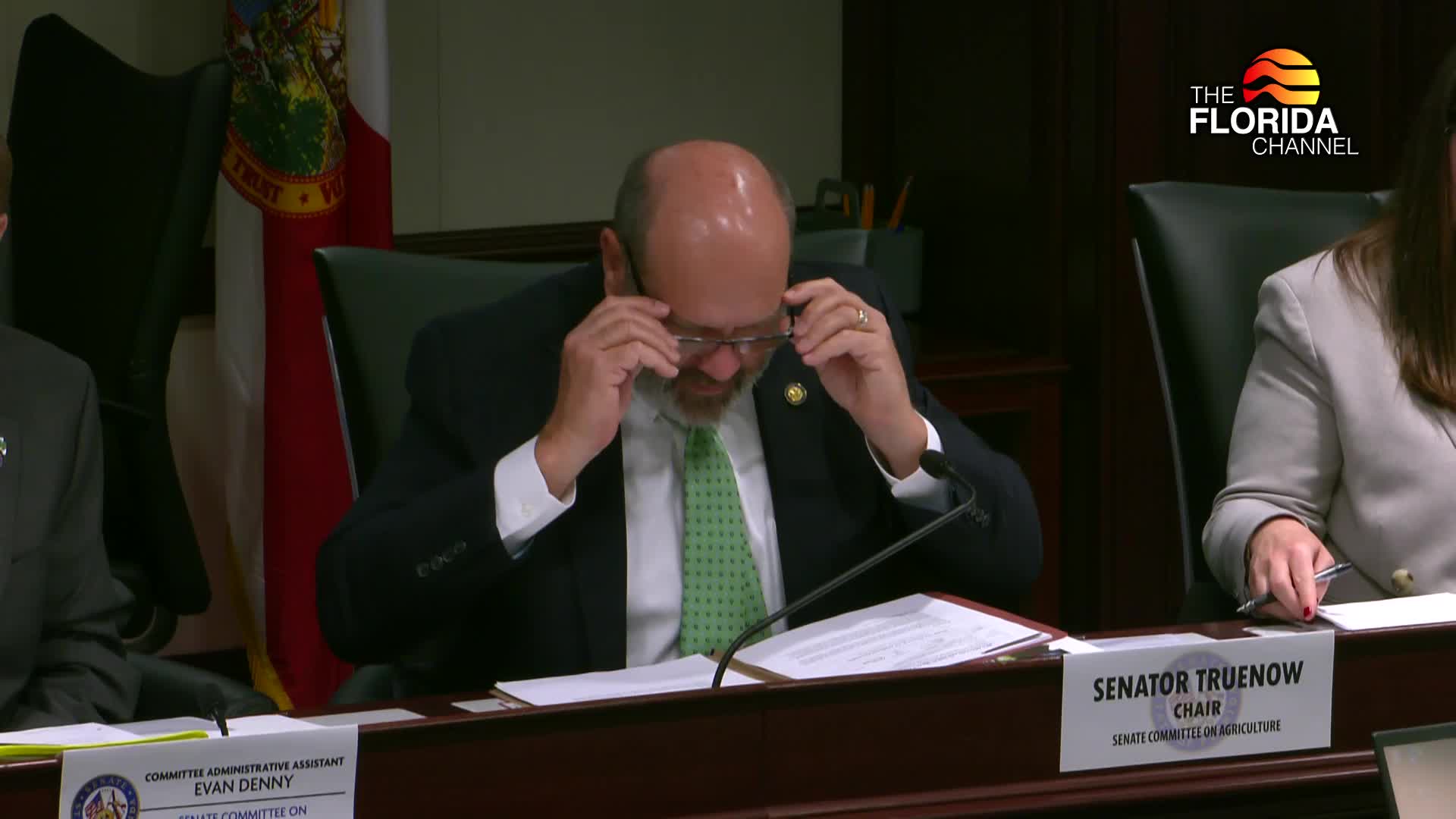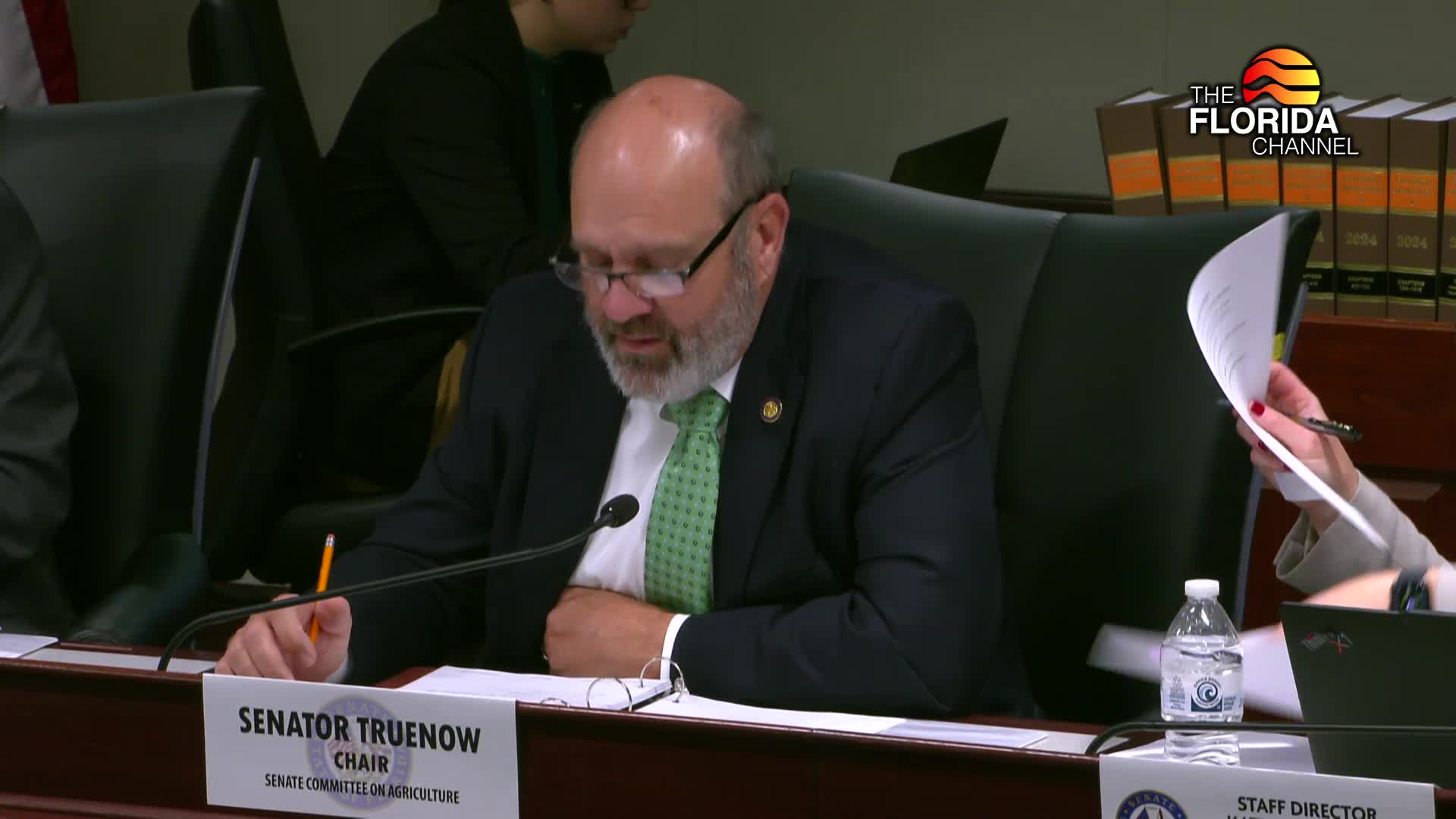Article not found
This article is no longer available. But don't worry—we've gathered other articles that discuss the same topic.

Florida 4‑H youth present program impact and request PECO support for camp revitalization

Committee approves amended consumers’ right‑to‑repair bill for portable digital and agricultural equipment

